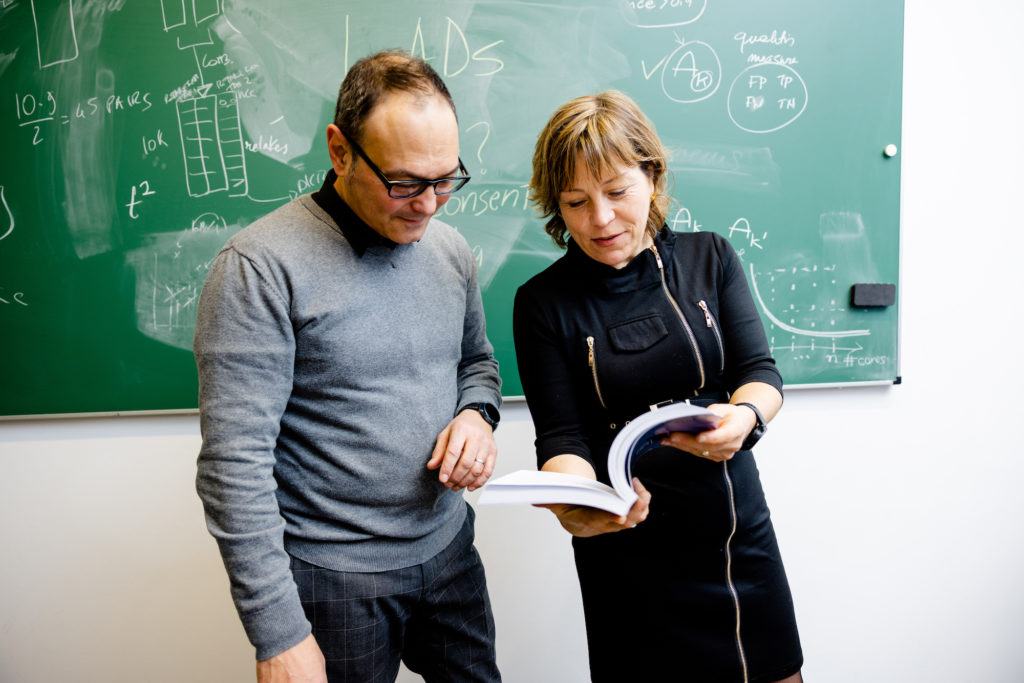In 2017, it was proposed by The Economist that the world’s most valuable resource was no longer oil, but data. In fact, as early as 2006, this shift in our technological activity was hypothesised, including the value that mining and analysing data would hold for us in the future. As a discipline that builds on the value of data mining and analysis, data science improves our knowledge and understanding of specific realities.

In the same way that oil is refined before it’s used, so must data be in order for it to later be analysed and used to effect change. As it stands, over 60% of the global population has access to the internet, contributing to a projection that in 2021, around 79 zettabytes of data were produced – that’s the equivalent of over two trillion 4K movies. With this number currently doubling every two years, big data is becoming big business.
For businesses, it plays an even more integral role – helping to develop more targeted marketing campaigns, preventing equipment from malfunctioning, protecting against security threats and even being a product itself. And these examples merely scratch the surface of its capabilities. In practice, data scientists must be skilled miners of data, being able to collect often large amounts and possess knowledge on analysis, algorithms and coding, not to mention being able to then present that data in a way that is useful to illustrate any findings.
Being a data scientist today requires being educated not only on the technical aspect of the science of information, but also understanding the processes and methods with which the law operates.

Data science has emerged as a necessity with diverse industrial and commercial applications but not all data is innocuous. Certain data can be sensitive – even safety critical – while data processing may raise legal and ethical concerns, for instance when data is collected without consent, or when the result of the analysis can be used to discriminate individuals. Thus, being a data scientist today requires being educated not only on the technical aspect of the science of information, but also being aware of current directives, regulations, as well as laws on data protection and ethics, while understanding the processes and methods with which the law operates.
In an EU funded project – part of a Marie Curie International Training Network – that encompasses a consortium of seven leading universities and research centres across Europe – as well as six industry partners and two supervising authorities – a new research programme for early-stage researchers (ESRs) has been deployed that combines doctoral education in data science and the law. Entitled ‘Legally Attentive Data Scientists’ (LeADS), the project began in January 2021, taking on board 15 talented and motivated doctoral researchers from all over the world.
Amongst all institutions that take part in LeADS, the aim will be to maintain innovative solutions within the realm of law, and help to expand the legal frontiers according to innovation needs.
As a member of the consortium, the initiative at the University of Luxembourg is led by Computer Science Professor Gabriele Lenzini, head of the Sociotechnical Cybersecurity Interdisciplinary Research Group (IRiSC) at SnT, and by Consumer Law Professor Élise Poillot from the Faculty of Law, Economics and Finance. Doctoral researchers, Xengie Cheng Doan and Somia Zohra El Mestari are the two ESRs that are participating this innovative training at SnT. Research scientist, Dr. Arianna Rossi, and research associate, Dr. Wilhelmina Maria Botes, are also taking part in the development of the educational and research programme.

At SnT, the team will focus on two avenues of research: innovative form of dynamic user consent and experience for the processing of biomedical data, in support of e-health activities of the EU digital society, and the advancement of new technologies for algorithms and algorithmic privacy, transparency and fairness.
Amongst all institutions that take part in LeADS, the aim will be to maintain innovative solutions within the realm of law, and help to expand the legal frontiers according to innovation needs. It will also create a practical implementation of a common language between data scientists and jurists. With the current lack of research programmes that bridge the gap between these two areas, LeADS provides a much-needed cross-disciplinary programme that blends experiential learning and research, linked with industry results.